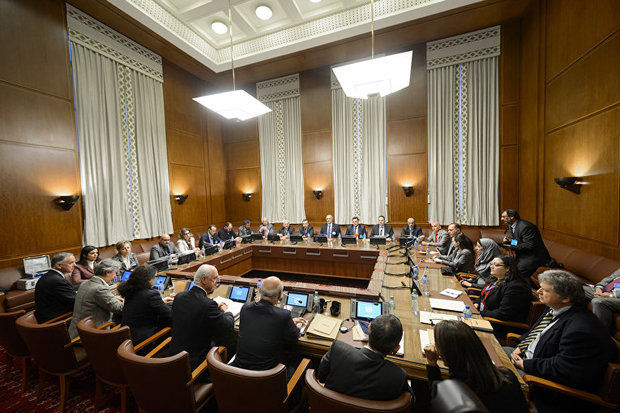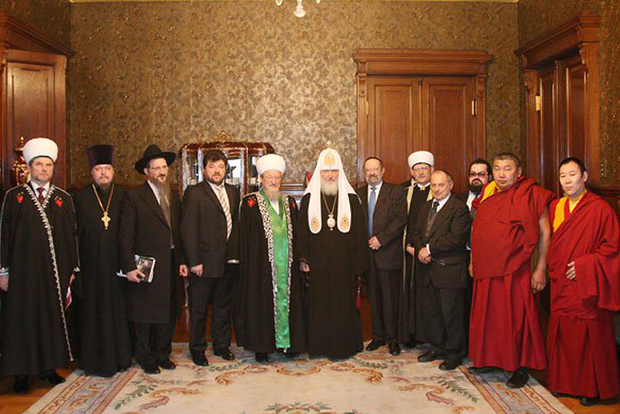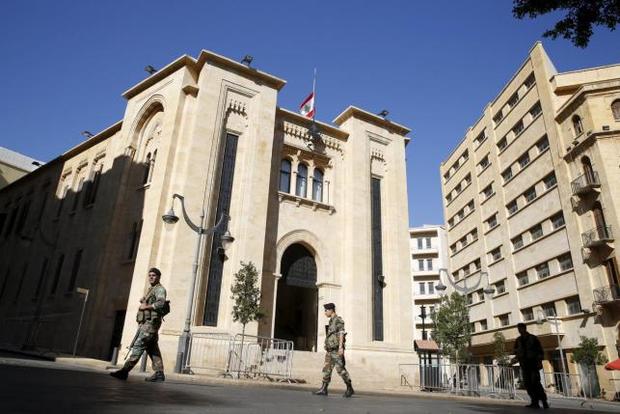Vsevolod Chaplin: 'The Empire was defeated by secular ideologies – first masonic, then Bolshevik’
New Syria: mandatory secularism or consideration of different opinions?
Protoiereus Vsevolod Chaplin in his column, written specifically for Realnoe Vremya, speaks about the Geneva talks on Syria, which, in his opinion, failed. The priest thinks about the future of Middle East country, including the role of the religious factor.
'They shouldn't talk to terrorists'
The Geneva talks on Syria ended nothing – mostly because of disputes about the participation of representatives of the organization Jaysh al-Islam, which in Russia and partly abroad is considered as a terrorist one. This organization is opposed to another terrorist group, banned in Russia, Daesh, and, at the same time, to the government of Bashar al-Assad. It practices not only army actions, but also public executions, including supporters of Daesh. The charges against this organization were quite serious, and they could not be ignored.
They shouldn't talk to the terrorists until they practice their own methods of 'fight'. Those who committe inhuman crimes must be punished.

The Geneva talks on Syria ended nothing – mostly because of disputes about the participation of representatives of the organization Jaysh al-Islam, which in Russia and partly abroad is considered as a terrorist one. Photo: Fabrice Coffrini/AFP
Help from Russia
However, the following question arises: will an internal Syrian dialogue under international mediation be successful if to exclude any supporter of Islamic law as the basis of state law? Those who think that the right is not a social contract, but something given by God once for all? And everyone who believes that the country should get from being secular to more religious oriented?
On 30 September, the Interreligious Council of Russia, uniting Orthodox Christians, Muslims, Buddhists and Jews, declared: 'Let Russian help take terror threat from the people of Syria and hasten the approach of peaceful life in this country and throughout Middle East on the basis of dialogue and understanding between different ethnic, religious and ideological groups.'
Double standards
Among these ideological groups – there are also the supporters of religiously motivated state. Is it really – at least in terms of condemnation of terror and bringing to justice the obvious villains – impossible to give them a right to participate in determining the future of Syria? The invocation that the country should remain 'secular' tells about a double standard. They do not present any demand to Saudi Arabia, Qatar or Iran.
You should not think that this invocation only plays into the hands of Assad. Our Western 'partners' are much more interested in the implementation of it, apparently, they still believe in the triumph in Middle East secular democracy after an American pattern.

'On 30 September, the Interreligious Council of Russia, uniting Orthodox Christians, Muslims, Buddhists and Jews <…> declared: 'Let Russian help take terror threat from the people of Syria and hasten the approach of peaceful life in this country and throughout Middle East on the basis of dialogue and understanding between different ethnic, religious and ideological groups.' Photo: pravmir.ru
Should Russia play in someone else's game, even if the high-brow experts on television tell that it is their own? Most part of anti-Russian negatives, putting out by the East to Islamic world, will be blocked, if our country will allow the dreams of religiously motivated law and justice to be realized in Middle East. If to exclude the terrorist component, this development of events will add Russia's allies.
Russian experience
By the way, our country has great experience: in several regions of the Russian Empire there were Kazyyat courts, polygyny, other Islamic norms. The Empire was defeated not by these, not by the dominant of Orthodoxy, but secular ideologies, first masonic, then Bolshevik. Today's way of life in Chechnya and in other North Caucasian republics brings us back to pre-revolutionary practice.
Model of Syria as a state
Strengthening in Syria the structure, such as Lebanese, would be a top class – adoption in the future Constitution of guaranteed seats in Parliament and state leadership for supporters of religious and secular social structures, for Sunnis, Shiites, Alawites, Christians and different ethnic groups – especially for Kurds, if they so wish. Perhaps, a model of federation and confederation will be useful.
By the way, and in the world the debate between supporters of religious and secular social structures is not finished yet, no matter how active adherents of 'the end of history' wanted it. Moreover, I am convinced that this dispute has just begun.

'Strengthening in Syria the structure, such as Lebanese would be a top class – adoption in the future Constitution of guaranteed seats in Parliament and state leadership for supporters of religious and secular social structure, for Sunnis, Shiites, Alawites, Christians and different ethnic groups.' Photo of Lebanese Parliament – Jamal Saidi (uk.reuters.com)
However, it is important to transfer it from the battlefield (military or informational) in space negotiations and agreements. The present dialogue of civilizations assumes a multicultural character – without any preconditions such as 'mandatory secularism' or the rule of 'democratic institutions'. Religious people have been saying about it for many years on different forums. There will not be a fair world on the planet if the advocates of secularism will not understand: their choice is not final and is not universal. It is just one of many choices.
Reference
Vsevolod Anatolyevich Chaplin – the priest of the Russian Orthodox Church, protoiereus; rector of St. Nicholas on the Three Hills Church, Moscow. Candidate of Theology.
He was born in 1968 in Moscow to the family of a professor Anatoly Chaplin.
After he finished secondary education in 1985, he joined the staff of the Publishing Department of the Moscow Patriarchate. He entered the Moscow Theological Seminary, graduating in 1990.
From October 1990 to March 2009, he was in the Department for External Church Relations (DECR) of the Moscow Patriarchate.
He was elevated to archpriest in 1999.
From 2009 to 2015 – chairman of synodal department for the Cooperation of Church and Society of the Moscow Patriarchate.
A presenter of the programme Vremya Doveriya on Radio Komsomolskaya Pravda. Constantly published in the newspaper Rus Derzhavnaya.
The author of several fictions under the pseudonym Aaron Chamier.